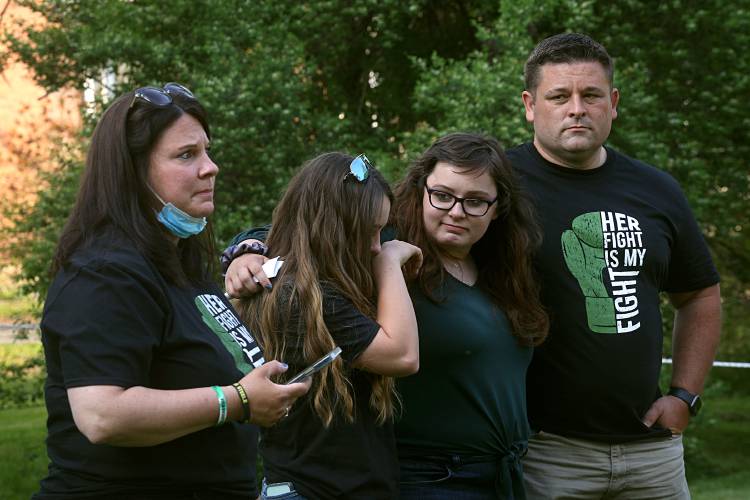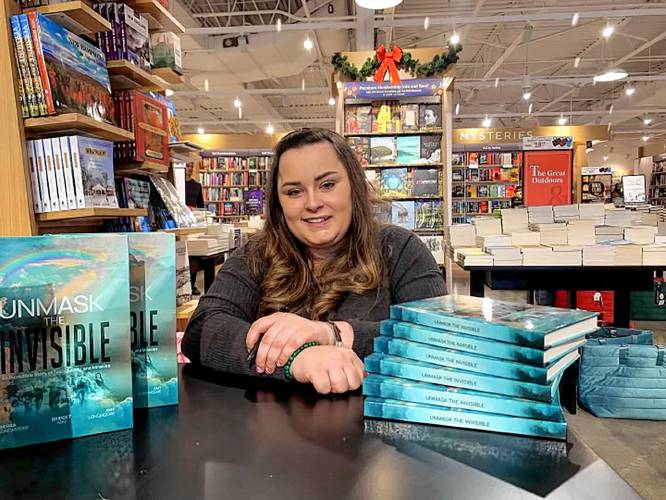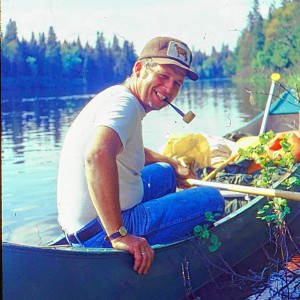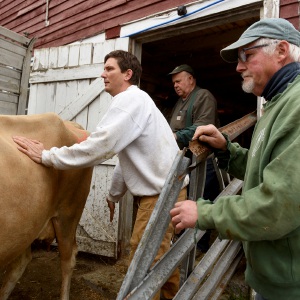Out & About: New nonprofit aims to support families affected by brain injuries
| Published: 03-22-2024 8:07 PM |
Sierra Longmoore has always loved creating art and it became even more important during her recovery from the traumatic brain injury she suffered in 2020 at the age of 17.
She continues to paint to this day and is particularly drawn to painting scenery.
“You can communicate with art,” she said in a phone interview. “When I had my (tracheal tube in her windpipe to help her breathe) I wasn’t able to talk much … so I drew and I painted.”
So it’s fitting that the ongoing “Paint It Forward Program” — which provides “Welcome Art Kits” to traumatic brain injury survivors, siblings and family caregivers — is the first big project of a new nonprofit organization founded by the Longmoores, who live in Bradford, Vt. The nonprofit, Unmask the Invisible, which is primarily being funded by grants and donations, aims to help meet the needs of families affected by such injuries, often known as TBIs.
Other art-themed projects Unmask the Invisible has in the works include art workshops and working with Dartmouth’s Thayer School of Engineering to create a weighted paintbrush for TBI survivors who have ataxia, a condition that can cause people to have challenges with balance, coordination and control of their muscles.
The family formed the nonprofit after it noticed gaps in services during Sierra Longmoore’s recovery.
While the acute and rehabilitation care Sierra received from medical providers was good, the family noticed “there were gaps in services and not necessarily gaps for Sierra,” Amy Longmoore, her mother, said in a phone interview. In particular, once the acute care stage is over, there aren’t many services available for family, friends and other community members who may struggle with adapting to their loved one’s TBI.
Maria Dailey, a former board member of Unmask the Invisible, is a White River Junction resident whose son, Peter, suffered a TBI after a fall in 2018. Since her son’s injury, Dailey has connected with other parents and caregivers whose loved ones have TBIs, including Amy Longmoore.
Article continues after...
Yesterday's Most Read Articles
“It affects other children in the family in a way that is kind of invisible and hasn’t gotten a lot of attention,” Dailey said in a phone interview. “No one talks to you about these things in the hospital. They see the acute side of the injury, but no one follows you through.”
Maria Dailey noticed the effect Peter Dailey’s injury had on her youngest son and emphasized how important it is to have resources for the whole family.
“They lost their brother and they then lost their parents,” Maria Dailey said. “They felt abandoned even though they weren’t physically abandoned, we weren’t always capable of being fully present.”
While Sierra Longmoore, who is one of five siblings, was going through her recovery, her brother Tanner was about to start his freshman year of high school.
“Everyone’s attention was on Sierra which was understandable,” he said in a phone interview. His parents spent most of their time with his injured sister and his older siblings tried their best to fill in the gaps. “Not only did I have the stress of my first year of high school I had it alone.”
Upon reflection, Tanner Longmoore said that it would have been helpful for him to talk about his feelings with other siblings or loved ones who have a family member with a TBI.
“Having a support, an older sibling or another parent to talk to about it even if it’s just a Zoom call for 20 minutes a day back then that would have made a very big difference to me,” he said. “Nobody should have to go through that alone, especially at such a young age.”
He suggested there could be get-togethers for siblings, such as hikes or other activities to help take their minds off the seriousness of their loved ones’ conditions.
During his roughly two decades in the Army, Justin Putnam, of Orford, witnessed many TBIs in his fellow soldiers.
Putnam, who serves the vice president on Unmask the Invisible’s board of directors, also is involved with two veteran organizations that assist families, including bringing them on retreats to help with the healing process. Down the road, Putman said he would like Unmask the Invisible to host similar retreats.
“So much is focused on the person who is suffering which is great but there’s a lot of other aspects to the injury and recovery that includes the family caregivers and friends,” he said in a phone interview.
Another goal of Unmask the Invisible is to provide spiritual resources to survivors and their families, which Amy Longmoore has found to be an important source of support as a caregiver.
Unmask the Invisible also is developing educational materials to provide a framework for how to interact with people who have survived TBIs.
“The invisible portion for me is what they are struggling with recall, with memory, with emotions,” Putnam said, noting that outwardly survivors may not look like they are injured. “Someone who doesn’t have a TBI, I think it’s hard … to have the patience when you don’t have the understanding.”
One thing that both Dailey and Amy Longmoore noticed when their children came home from the hospital was that people struggled with how to interact with them.
“I think it was really difficult for people who knew Sierra prior to the crash and had to interact with her after the crash,” Amy Longmoore said. “It was sometimes heartbreaking to me but also eye-opening.”
Sierra Longmoore is looking forward to events the nonprofit has planned, including a softball tournament she plans to play in this summer.
“We’re not alone,” she about TBI survivors. “That’s why it’s called Unmask the Invisible because they could see me as just a normal person, but deep down in my head I’m a little different now than I was.”
For more information about Unmask the Invisible, visit unmasktheinvisible.org. Liz Sauchelli can be reached at esauchelli@vnews.com or 603-727-3221.



 A Life: Richard Fabrizio ‘was not getting rich but was doing something that made him happy’
A Life: Richard Fabrizio ‘was not getting rich but was doing something that made him happy’ Herd departs Hartford’s last remaining dairy farm
Herd departs Hartford’s last remaining dairy farm 
